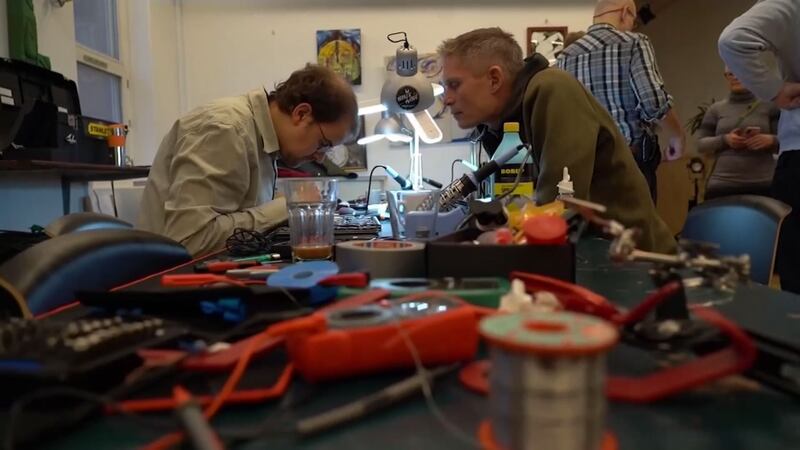OLYMPIA, Wash. — Washington residents are going to have a chance to speak out on whether they should have choices on how to repair their own electronics.
The issue is called “right to repair,” and some bills offering those rights will have public hearings this week.
It’s a situation many of us are too familiar with: We spilled a drink on our laptop, cracked our phone, dropped a tablet or had another kind of personal electronic device break. Lawmakers supporting right to repair bills say such repairs can be costly and sometimes lead to just replacing the device. Washington’s Right to Repair legislation would potentially require manufacturers to provide consumers and independent repair shops with parts, tools, and information to repair the electronics consumers already own.
Many companies hold that type of information close and consider it proprietary, but supporters of the legislation say that creates a monopoly on repairs and allows the manufacturer to essentially charge whatever they want.
If a right to repair bill passes, it could impact anyone who owns a device, which could mean nearly everyone in Washington state.
Rep. Mia Gregerson said that such a measure could help save taxpayers money when governments need to make device repairs.
The Washington Public Interest Research Group also supports right to repair measures. Dax Tate with WashPIRG said that if one is passed, it could save the average Washington family $330 per year or $960 million statewide. He said it would also keep people from throwing away old phones.
“It’s too often easier to throw out your old device and replace it because you can’t find an easy way to get it fixed and that’s leading Washingtonians to throw away 8,700 phones a day — 256,000 tons of E-waste annually,” said Tate.
Gregerson said that the measure would apply to devices beyond phones and tablets.
“There are other things other than electronic devices in the nation — we’re talking about where there’s farm equipment, wheelchairs, medical equipment,” said Gregerson.
She said giving some power to independent shops would also give people in different parts of the state other options for repairs.
“These small providers can’t get the same purchasing power as your Best Buy, which is contracted directly with the manufacturer,” said Gregerson.
She said rural communities could benefit since many residents in those areas are often having to ship devices away for repairs, which sometimes adds even more cost to the repair process.
Some industries have voiced opposition to the idea of the right to repair. In a lengthy statement posted on its website, the Entertainment Software Association gave its perspective on video game manufacturers. It reads, in part:
“Video game consoles are unique from other devices, appliances and consumer products ... right to repair mandates, which allow unauthorized parties to bypass the specialized software that protects video game consoles, present unique security and piracy risks to the video game ecosystem.”
The ESA also added:
“Unlike other industries, video game device manufacturers must not only protect their own products but also the games played on their devices. These games are often created by other independent video game publishers. That’s why major manufacturers of video game consoles include technological protections to safeguard their platforms from infringement, as well as from network and piracy threats.”
Some groups have also expressed concern that there could be copyright infringement if repair shops and others were allowed access to repair information, along with parts and other things that could be used to fix devices.
Lawmakers who support such measures argue that right to repair would target hardware and not software — and software is usually the domain where copyright protection comes into play the most.
The hearings for right to repair bills will be in the state Senate on Tuesday and in the state House on Wednesday.
©2023 Cox Media Group








